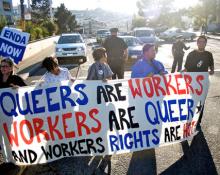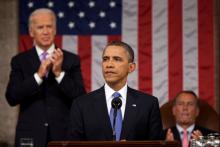Alliance Defending Freedom

On Thursday, Oct. 30, Finnish politician Päivi Räsänen had her day in court. Again.
Räsänen, a former interior minister, and Lutheran Bishop Juhana Pohjola, are being adjudicated for alleged hate speech after Räsänen tweeted a Bible verse questioning her church’s participation in a Pride event and co-authored a booklet with Pohjola outlining her beliefs on marriage and sexuality. Prosecutors claimed both constituted hate speech. Though Räsänen was twice acquitted in lower courts in Helsinki, the case will now be decided by the Finnish Supreme Court.
Beyond Finland, the case is just one moving part in an evolving, broadening battle over free speech that is escalating across the Atlantic.

The Supreme Court has ruled for a Missouri church that claimed religious discrimination after it was refused state funds to improve its playground.
Ruling 7-2, the court on June 26 determined that the state had unfairly denied funds for Trinity Lutheran Church in Columbia under the First Amendment’s free exercise clause.

According to the lawsuit, Country Mill is the only business to have been prohibited under the market’s anti-discrimination policy.
In a statement, the city of East Lansing said the farmer’s refusal to host a same-sex wedding violated a “long-standing ordinance that protects sexual orientation as well as the Supreme Court’s ruling that grants the right for same-sex couples to be married.”

The Supreme Court on Jan. 12 considered a tiny church’s curbside sign in a case that could raise the bar on government regulation of speech, and make it easier for houses of worship to advertise their services.
The Alliance Defending Freedom, the nonprofit advocacy group that represents Pastor Clyde Reed and his Good News Community Church, bills the case, Reed v. Town of Gilbert, as a religious rights case. But their attorney mostly argued it on free speech grounds.
“The town code discriminates on its face by treating certain signs differently based solely on what they said,” attorney David A. Cortman told the justices. “The treatment we’re seeking is merely equal treatment under the First Amendment.”
The town of Gilbert, Ariz., outside Phoenix, allows political signs to be much larger and permits them to stay up much longer, Cortman said.
![Houston Mayor Annise Parker. Photo courtesy of Zblume (Own work) [Public domain], via Wikimedia Commons/RNS.](https://sojo.net/files/styles/medium/public/blog/Annise_Parker-336x369.jpg)
Houston Mayor Annise Parker, who drew headlines for becoming the first openly lesbian mayor of a major American city, led support for the ordinance. The measure bans anti-gay discrimination among businesses that serve the public, private employers, in housing and in city employment and city contracting.
Under one of the hotly contested parts of the ordinance, transgender people barred access to a restroom would be able to file a discrimination complaint.
The ordinance, which exempted religious institutions, was passed in June, though its implementation has been delayed due to legal complaints.

The Internal Revenue Service said it will monitor churches and other houses of worship for electioneering in a settlement reached with an atheist group.
The settlement was reached Friday in federal court in Madison, Wis., where the initial lawsuit was filed in 2012 by the Freedom from Religion Foundation, a Wisconsin-based atheist advocacy group that claims 20,000 members nationwide.
The suit alleged the IRS routinely ignored complaints by the FFRF and others about churches promoting political candidates, issues or proposed legislation. As part of their tax-exempt status, churches and other religious groups are prohibited from engaging in partisan political activity.

What’s the next religious liberties faceoff? Some suggest it could be between LGBT workers and religious owners of private businesses.
On Monday, while news media dissected the Supreme Court’s Hobby Lobby ruling, President Obama pledged to sign an order protecting federal employees from discrimination based on gender identity .
But he has yet to sign an executive order version of the Employment Non-Discrimination Act, which would ban discrimination based on gender identity for all federal contractors and subcontractors, an order that affects for-profit businesses.
Now, in the wake of the Hobby Lobby ruling, such an order could rile the waters again, several legal experts say. They see a line between a ruling about contraception and hiring, firing, and benefit concerns for lesbian, gay, bisexual, and transgender employees.

Gay rights are colliding with religious rights in states like Arizona and Kansas as the national debate over gay marriage morphs into a fight over the dividing line between religious liberty and anti-gay discrimination.
More broadly, the fight mirrors the national debate on whether the religious rights of business owners also extend to their for-profit companies. Next month, the U.S. Supreme Court will decide whether companies like Hobby Lobby must provide contraceptive services that their owners consider immoral.
The Arizona bill, which is headed to Gov. Jan Brewer’s desk for her signature, would allow people who object to same-sex marriage to use their religious beliefs as a defense in a discrimination lawsuit.

Federal officials have asked the U.S. Supreme Court to review the government mandate that private companies offer employees birth control coverage despite the business owner’s moral objections, with the company at the center of the suit owned by billionaire evangelical Christians.
Hobby Lobby’s lawsuit has been one of the most high profile of 60-some cases involving the Obama administration’s contraceptive mandate. The arts and crafts chain was founded by David Green, whom Forbes called “the biblical billionaire backing the evangelical movement.”
In June, the Obama administration issued final rules for the mandate that requires most employers to provide contraception at no cost. While there are exemptions for religious groups and affiliated institutions, there are no carve-outs for private businesses with religious owners.

The federal government wants to give Annie Laurie Gaylor a tax break for leading the Freedom from Religion Foundation.
But Gaylor, an outspoken atheist from Madison, Wisc., wants to stop them — and she’s asking a federal judge for help.
The standoff is the latest twist in a court battle over the parsonage exemption for clergy, a tax break that allows “ministers of the gospel” to claim part of their salary as a tax-free housing allowance.

The Obama administration on Friday issued final rules for religious groups for its controversial contraception mandate, maintaining its position on who qualifies for religious exemption and allowing no carve-outs for private business owners.
More than 60 lawsuits have been filed over the mandate, a part of President Obama’s Affordable Care Act that requires most employers to provide contraception at no cost to employees.
Just as when the draft rules were first unveiled in February, conservatives denounced them as an unconstitutional violation of religious freedom that forces religious organizations and the religious owners of private businesses to offer services they find morally abhorrent.